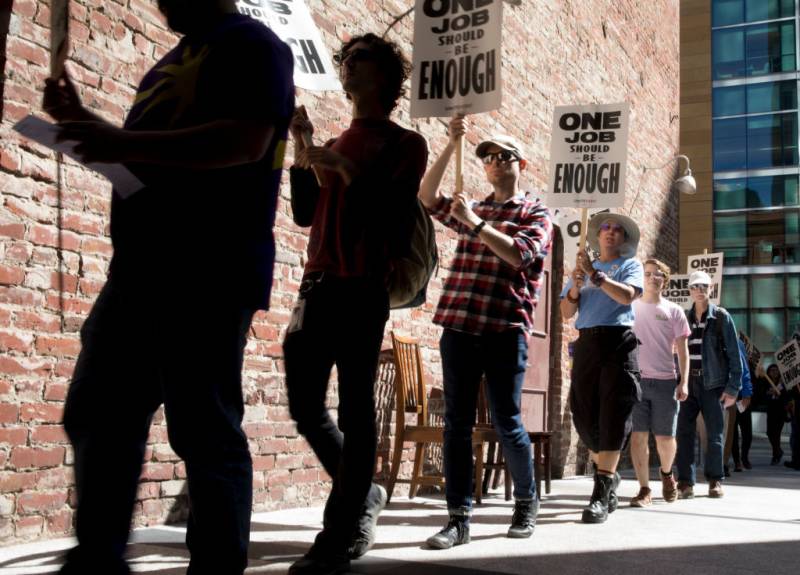According to Tapia, large hotel corporations are taking advantage of COVID-era staffing cuts to squeeze workers for profit. She pointed to union estimates showing the U.S. hotel industry’s gross operating profit was 27% higher in 2022 than in 2019, while staffing per occupied room was down 13%.
“Hotel workers are tired of wages that don’t actually cover the cost of living and painful workloads that leave us exhausted at the end of the day,” Tapia said in a statement. “This overwhelming strike vote demonstrates hotel workers’ strong resolve to get the respect they deserve. We’re ready to strike if that’s what it takes.”
Workers in Honolulu, Boston and other cities have overwhelmingly voted yes to potential strikes, according to Unite Here. Strike authorization elections are also expected in San José, San Diego, Seattle and Baltimore. Overall, about 10,000 workers in nine cities could walk off the job in the coming months.
Marriott, Hilton and Hyatt did not immediately respond to requests for comment.
Michael D’Angelo, who leads Hyatt’s labor relations in the Americas, told KQED earlier this week that the company’s hotels continue to offer employees competitive wages and benefits, including comprehensive healthcare coverage.
“We recognize the contributions of our employees and respect their right to voice their opinions,” D’Angelo said in a statement. “Our colleagues are the heart of our business, and their wellbeing is always a top priority.”
San Francisco’s hotel industry, which relies heavily on business travel and conventions, is still struggling to recover from the COVID-19 pandemic, even as tourism in other cities rebounded. Hotel occupancy rates remain lower than in 2019. The hotel tax revenue collected for the 2022–2023 fiscal year was just over two-thirds of the $414 million collected in 2018–19, according to Ted Egan, San Francisco’s chief economist.

